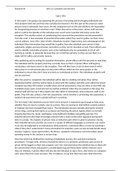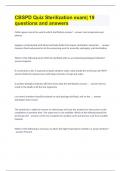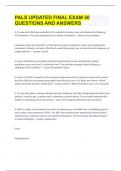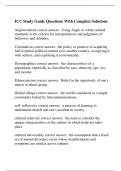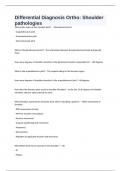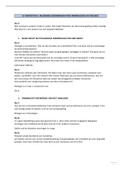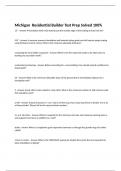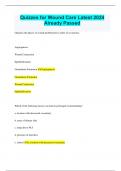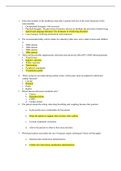Other
Public Services Unit 21: Custodial care services P4
- Institution
- PEARSON (PEARSON)
This piece of work covers all of the criteria for P4 in Public Services Unit 17: Police Powers in the Public Services. I have achieved a distinction in this unit by Pearsons Edexcel in 2020 and achieved a D*D*D* in the first year. I hope this helps!
[Show more]
